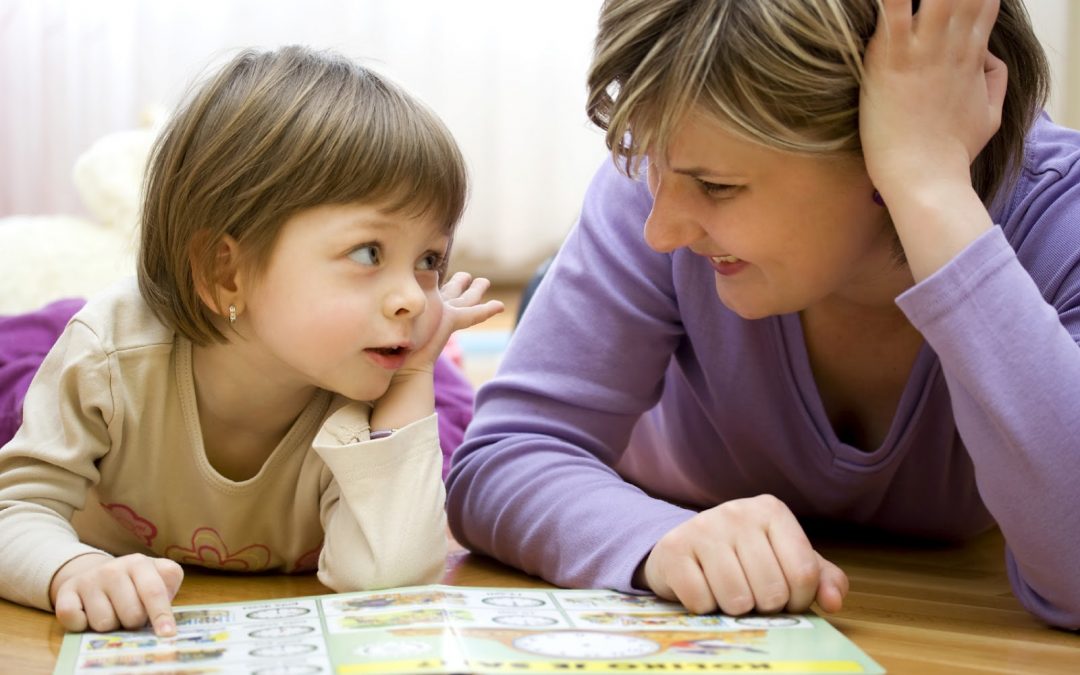
Has My Child Reached the Reading Benchmarks for Kindergarten?
The Kindergarten school year is coming to an end and as a parent your thoughts are probably turning towards first grade. Is your child ready for first grade reading? How do you know? Here is a list of benchmark reading accomplishments for kindergarten that was included in a report prepared by a National Academy of Sciences panel titled Preventing Reading difficulties in Young Children, Catherine E. Snow. Kindergarten Reading Benchmarks.
Your Child…
Has reached the reading benchmarks for Kindergarten if he or she:
- Knows the parts of a book and their functions.
- Begins to track print when listening to a familiar text being read or when rereading own writing.
- “Reads” familiar texts emergently, i.e., not necessarily verbatim from the print alone.
- Recognizes and can name all uppercase and lowercase letters.
- Understands that the sequence of letters in a written word represents the sequence of sounds (phonemes) in a spoken word (alphabetic principle).
- Learns many, though not all, one-to-one letter-sound correspondences.
- Recognizes some words by sight, including a few very common ones (a, the, I, my, you, is, are).
- Uses new vocabulary and grammatical constructions in own speech.
- Makes appropriate switches from oral to written language situations.
- Notices when simple sentences fail to make sense.
- Connects information and events in texts to life, and life to text experiences.
- Retells, reenacts, or dramatizes stories or parts of stories.
- Listens attentively to books teacher reads to class.
- Can name some book titles and authors.
- Demonstrates familiarity with a number of types or genres of text (e.g., storybooks, expository texts, poems, newspapers, and everyday print such as signs, notices, labels).
- Correctly answers questions about stories read aloud.
- Makes predictions based on illustrations or portions of stories.
- Demonstrates understanding that spoken words consist of a sequence of phonemes.
- Given spoken sets like “dan, dan, den,” can identify the first two as being the same and the third as different.
- Given spoken sets like “dak, pat, zen,” can identify the first two as sharing a same sound.
- Given spoken segments, can merge them into a meaningful target word.
- Given a spoken word, can produce another word that rhymes with it.
- Independently writes many uppercase and lowercase letters.
- Uses phonemic awareness and letter knowledge to spell independently (invented or creative spelling).
- Writes (unconventionally) to express own meaning.
- Builds a repertoire of some conventionally spelled words.
- Shows awareness of distinction between “kid writing” and conventional orthography.
- Writes own name (first and last) and the first names of some friends or classmates.
- Can write most letters and some words when they are dictated.
Has your child NOT reached these reading benchmarks for Kindergarten?
If you are worried that your child did not reach the reading benchmarks for Kindergarten, keep in mind that about 80% of kids learn to read and write with very little instruction. The other 20% do not learn that way. They need things to be broken down and need to be taught. This 20 percent needs early intervention. With intensive instruction, your child can get on track. If you are in need of a really great reading intervention program, please check out the PRIDE Reading Program here.
Thank you for reading my post today!

Karina Richland, M.A., is the author of the PRIDE Reading Program, a multisensory Orton-Gillingham reading, writing and comprehension curriculum that is available worldwide for parents, tutors, teachers and homeschoolers of struggling readers. Karina has an extensive background in working with students of all ages and various learning modalities. She has spent many years researching learning differences and differentiated teaching practices. You can reach her @ info@pridereadingprogram.com or visit the website at www.pridereadingprogram.com
